- Home
- Andy McNab
Whatever It Takes Page 2
Whatever It Takes Read online
Page 2
I hoped it hurt, and I hoped it fucking scared him.
3
I got back to the ground floor, where sunlight burst through the glass walls into the kitchen, and decided not to grab another apple from the display for the trip back into town. It would have been to do with taking a trophy, rather than needing something to eat. I would have had more fun sticking Dalladine’s toothbrush up my arse. That was always a thought when I got into a target’s house, but I’d never done it. It would have taken too much time, and I always wanted to be in and out as fast as I could.
I approached the back door, stopped and checked behind me. Had anything fallen out of my bag? Out of my pockets? Had I moved any furniture or expensive objets d’art out of place? Thankfully, even though it was a bit of a show house, it was also a house with kids. It wasn’t like it was just one person living there, who’d know where everything should be. It looked exactly as it had when I came in. All I had to do was reset the alarm, and leave, just like the cleaner would have done if the family was out. It would soon be discovered that the CCTV wasn’t working, and the repair company would come down and do their stuff, but that was never going to flag up as a problem. The alarm had always been in working condition, and had always reset after thirty seconds. By the time that process had taken place, I’d be miles away and not on any footage, so what did I care?
I had found the PIN for the alarm by sitting in the back of a hire van with a telescope that should have been looking at the stars but was focused instead on the back door. It was easy. Why did designers and installers put keypads so close to the door? A few steps into the house wouldn’t have knackered the house-owner, and it would have stopped people like me discovering the code so easily.
There were six digits, ending with 09. Probably one of his sons’ birthdays.
As I reached the door, I heard the sound of a vehicle approaching the house.
Shit.
I hit the alarm keys and ran back inside, turning right immediately to take me out of line of sight of the door. The beeps echoed around the house as the alarm system ran its checks before setting.
The moment the beeps double-toned I stopped dead. Both my arms were still out, pushing me forward as I jogged to make distance.
I kept perfectly still. Had the CCTV been working, I would have looked like a running trophy on a shelf with an athlete on top, frozen mid-stride. Slowing my breath, I strained to hear what was happening outside. The door would open soon. I hoped it would. Otherwise, if it was the family returning, the kids might run around the front of the house to head straight to the infinity pool, and then I was in the shit. They’d run straight past me.
The door opened. The sound of children’s laughter mixed with the beeps of the alarm as it waited for the PIN to be inputted.
I started moving, using the noise to cover me. I knew exactly where I was heading – I knew the house inside out and none of the family would be venturing to the utility room. It was a room of washing machines, driers, cleaning materials. The Dalladines had people who inhabited this part of the house. It wasn’t for them.
The kids shouted with joy and the mother told them to calm down. As they thundered inside, I closed the door to the utility room and pushed an ear against it to hear what was happening on the other side. None of the family had lost their American accents, though I supposed the kids would at some stage.
Marcus Dalladine shouted in mock excitement. ‘Let’s do the pool, kids!’
A woman’s voice joined in. ‘Grandma’s coming too!’
More screams of delight from the kids.
Good, they’d be outside soon. And then I could join them, but running in the opposite direction.
The shouts receded. Maybe they’d opened the glass doors from the lounge.
I eased the utility-room door open to get a bit of an angle. So far so good. I could hear them outside in the distance.
I moved out and slowly along the corridor towards the kitchen, then froze. Plates and cutlery were being moved around. I stayed motionless.
I waited as I listened to the family joy from the other side of the house, as the kids and their father frolicked in the water. One of the kids called, ‘Mom!’
She acknowledged. ‘I’m coming! I’ve got cookies.’
I gave it thirty seconds then took a couple of steps. The only way out was along the corridor, turning left just before the kitchen.
Through the glass walls, I could see the Dalladines at play. Marcus was happy and content, not a care in the world. Well, he hadn’t a care in the world, had he? I stayed exactly where I was, watching them enjoy the money he’d ripped out of the hands of families like mine.
4
My father had been a quantity surveyor, like me. He was the first in his family to go to university, worked his way up from nothing, then started a business to support and educate his family. My mother ran the office. Things were good. The harder they worked, the luckier they were. They built a successful business. Then the ’08 crisis happened, and suddenly contracts weren’t being honoured. The big construction companies held back on their invoices. No one knew what to do about it.
I qualified in ’07 and went straight into the firm. We kept going, working as best we could, trying to carve our way somehow out of the mess. Even my sister, Charlotte, sacrificed her career with a London accountancy firm to help. She came back up north to York to run the books. We both worked for nothing to try to get the firm back on its feet. Then the bank stepped in to help us – only, of course, it didn’t.
They said they were going to ‘restructure’ us. They were there to help us, they said, to let us grow. Only they weren’t. They just wanted to squeeze us small companies dry while charging high interest rates, high fees, and once the cashflow dried up they kept pressuring.
The bank mis-sold Dad an interest-rate hedging product that he didn’t understand. We couldn’t keep up the repayments, and he was forced to go cap in hand to the bank. They said we had to transfer to their ‘restructuring group’, where we were subjected to even more fees and higher interest rates.
The manager at the restructuring group said the transfer was because Dad had defaulted on his loan and, under the contract he’d signed, that triggered an automatic increase of interest. He also added management fees because of the ‘additional attention’ the case would need. And because this additional attention posed an additional risk to the bank, the loan was subject to an additional exit fee.
‘Restructuring group’? Like fuck. The bank said it was designed to help small businesses recover but it treated us as cash cows. Fees and interest rates kept spiralling and ultimately Dad couldn’t take the stress. He caved in. They bought the assets for peanuts to sell on later to make even more money, while we sank even lower.
My sister lost her house. My mother was on anti-depressants. Poor Mum – she’d always had dreams of travelling the world when she and Dad retired, but before long it was hard even to get her past the front door.
And then we all lost our father, husband, grandfather – for the simple reason, though this wasn’t on his death certificate, that it was just too much for him: the shame of failure – the failure of the business, not being able to support his family. The failure of the system he had believed in all his life and had raised us to respect. Bank managers lent you money to thrive. They didn’t stab you in the back.
I kept telling him it wasn’t his fault. But in 2011, he overdosed on my mother’s pills along with a glass of whisky from the cheap bottle the bank had given him years before as a birthday present, and that was it. He was gone. At least he got the last laugh.
At least he was spared the pain of witnessing his beloved Jean develop early-onset dementia and end up in a nursing home because, much as we wanted to, the family couldn’t cope. The nursing home was fantastic – only the best for our mum – but it cost a thousand a week, which was £52,000 a year of taxed income, and that was never going to happen on the salaries we had. We were lucky we lived in
a cheaper part of the country – a guy I was in the reserve with lived in London and was paying out £1,800 for his dad’s care.
Grandma sat by the pool with the world’s biggest floppy hat on. I watched as she acted being frightened as the kids smacked the water to splash her. There’d be no worries about paying for her care – with my money – when the time came.
I knew I needed to get moving, but I remained where I was. This was the first time I had ever seen my targets in their home. I couldn’t help watching the watery joy mixed with shouts of excitement from the kids as Dad threw them up out of the water for them to end with a splash, now that Grandma had retreated out of the way.
I remained static for another full sixty seconds, watching and hating, before I gave myself a mental kick to get moving.
I hoped my dad was watching. If he was, I knew he’d be laughing his bollocks off. As for me, I’d join in the laughter some other day, probably with him. But for now, fuck the Dalladines.
Part One
* * *
2019
1
Akaroa
Saturday, 27 July 2019
09.15 a.m.
‘I know you police like detail and hate excuses, but can I ask one thing of you, guys? Can I ask you to hang on to a couple of thoughts while I take you through all this stuff? Yes, I have stolen, but, no, I am not a thief. And no, this is a very big no, I am not a murderer. I did not kill Richard. Please do not define me by what I have done or what you think I have done. Please just hear me out.’
I limped my way across the room and placed the tray on the circular coffee-table. Staring at me from the other side of the marble, the two not-so-welcome visitors’ faces were unreadable.
‘Look, I never was the sort to break into a house in the dead of night with a stripy jumper on. Come on, I am – was – a quantity surveyor, not Tom Cruise dangling from a rope. Do I even look like the kind of person you normally deal with?’
Their look told me I did.
I pushed down the plunger of the cafetière until my palm hit the chrome. These two were hard work. I risked a smile. ‘Not the most talkative of police, are you?’
Lawrence tapped the GoPro on the table in front of them with what had to be one of the world’s biggest fingers. The small monkey-grip tripod kept the lens aimed at me. ‘We’re here to listen. It’s you that’s got a lot of talking to do.’
I sat on the big brown leather La-Z-Boy that Charlotte had bought to help take the strain off my leg, and glanced at Janet. She had sat back in the trendy blue-velvet sofa and seemed content to let Lawrence do the talking. No idea who had designed the thing: the house wasn’t permanent, let alone the contents, so why would I bother taking an interest? I should be moving into my new place, not far from here, in thirteen weeks’ time. That was if I managed to get this situation squared away, of course. If not, it would be due its first renovation by the time I ever got to see it, unless they gave me time off for good behaviour.
‘You’re right. I have a lot of ground to cover, haven’t I?’
Tony’s thoughts on New Zealand’s prisons came flooding back to me. Maybe the system here had more going for it than the UK’s. I might not get my nose fixed like he’d said he would, but maybe there were classes and I’d learn how to paint like Van Gogh at last.
I should have started talking, but I couldn’t help studying just a little bit longer these two who held my fate in their hands. Old habits died hard. Always doing my homework. The question I was asking myself was this: I was holding a get-out-of-jail-free card, but would they see it that way?
Lawrence, like me, was in his mid-thirties. Unlike me, he was a massive unit, big enough to look uncomfortable in a suit and tie. His badge called him Inspector Lawrence Tutavake. He leant forward to pick up a mug of black, turned and presented it to Janet, who was an even higher rank, and maybe ten years older. These two of New Zealand’s finest were taking what happened during the build-up to the events in Sanctuary very seriously, and that was why they had flown down from the country’s police HQ in Wellington. It seemed they hadn’t been hiding their heads in the sand and avoiding a confrontation, unlike some in their government. Some just wanted the whole episode to disappear. I had got an immediate and very clear impression from Superintendent Janet Baranek, when she banged on the front door at exactly 8 a.m. this morning, that she wasn’t one of them. My only hope was that they finally recognized they had no choice but to leave me, leave all of us, the whole situation, alone. It was what they’d been ordered to do, for all our sakes. But that was the problem when there were good people wanting to do the right thing, and these two had the power to do it. I knew, because these past eight months I had become just like them.
‘Yes. A lot.’
Lawrence didn’t use many words, but he had a strong accent. I’d been told the basic New Zealand accent was a quarter Scottish, a quarter Irish, and half broad Cockney, and after spending so much time on both islands over the last seven years I reckoned he was more North than South.
His haircut was universal police issue. The standard always seemed to be short back and sides with a side parting, a bit like mine, in fact. His hair was thick and naturally black; hers was jet black, centre-parted, and cut above the shoulder. Practical, much the same as her makeup. Not much, but enough to let you know she was wearing it. They were both in business clothes, off the peg, the sort you’d buy a couple of in a sale because they were for work. I knew about these things. In my past life I had done the same.
Janet wore a matching grey skirt and jacket with a white blouse, and he a grey suit, white shirt, blue tie. In this neck of the woods, wearing a suit was strange enough, but a tie was usually for funerals. It must have been the talk of the town when they turned up for an early-morning coffee.
Lawrence gave his mug a splash of milk, then mine when I asked for it. Now he, too, sat back, and they both kept their gaze on me. Janet crossed her legs, displaying practical, low-heeled shoes, black, of course, as one arm went over the back of the sofa.
It was me who was starting, then. I waved my arm around the room. ‘So, I’m going to tell you about all this.’
Even though I said so myself, it was a pretty impressive place. This room alone was 26.8 metres by 25.2, and enjoyed an uninterrupted view of the Pacific. I might not know about soft furnishings but the one thing I did know about was buildings and their dimensions. Especially this one: not the furniture and décor, but every detail of its construction, even down to the spec of the filters on the waste-water treatment system that sent only clean water back into the environment.
‘But before I start, please keep somewhere in the back of your mind that I’ve spent my whole life doing the right thing. It’s just that sometimes doing the right thing isn’t enough.’
I took a sip of the dark roast and wondered if they’d already made up their minds. If they had me down as a bad guy, was I in with at least a shot of changing that? I was sure I was. They didn’t know what I knew. Not yet, anyway.
‘So, okay. It all started here … right here … in Parmesh’s house. But you need to understand something before that. You need to understand what brought Parmesh to New Zealand in the first place.’
2
‘Why do Silicon Valley billionaires buy properties down here in one of the most isolated towns in one of the most isolated countries in the world? Like all of them, Parmesh Subramanian was looking for isolation and security, but at the same time he needed instant access to his yacht, and to be just an afternoon’s drive from Christchurch International.’
I switched my focus away from the two faces opposite and into the GoPro lens.
‘To be able to do that takes money, and that was why I was here. For his money. He got onto my list as soon as he decided to come down here from the US. But you know that anyway, don’t you?’
I glanced up from the camera.
‘Can I call you Janet and Lawrence?’
I felt I’d already earned the right to be familiar. A
fter all, I’d made them coffee.
I got a couple of nods.
‘Thank you. Look, it didn’t matter what I took – it was all the same to me. I just wanted to take from these people. I don’t need to apologize. I’m a good guy who’s done some not-so-good things, but I have reasons – good reasons. You’ll see.’
As they cradled their mugs I waited for a reaction or a question, but I didn’t get either. They sat there, staring and listening, with no visible reaction. I supposed it was police training not to be read easily, to put the suspect off balance. But I knew exactly what they thought of me, and I understood why.
‘Okay, then.’ I placed my own still-far-too-hot mug on the table and sat forward.
‘I’ve always done my homework. My research told me that Parmesh had just turned forty and, like you’d expect from a gazillionaire, he had all the add-ons that made him even worse. He was healthy, good-looking, married with three beautiful kids, all adopted and of all colours.
‘He was born in Sri Lanka, but escaped with his parents in 1985 from the civil war that was raging at the time. His family were from the north and among the country’s Hindu minority. They, along with Christians, were caught up in the conflict as the Tamils rebelled against the government for an independent state.
‘The minorities were persecuted from all sides but the Subramanians were some of the lucky ones and managed to secure a US refugee visa. The family was set to become part of the American dream, but at a cost. Just days before they were due to leave, government forces attacked their village and many members of his family became statistics in the war’s hundred thousand civilian casualties. They were killed as they slept or tried to escape into the bush.

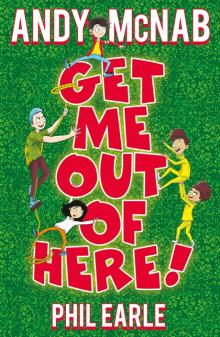 Get Me Out of Here!
Get Me Out of Here!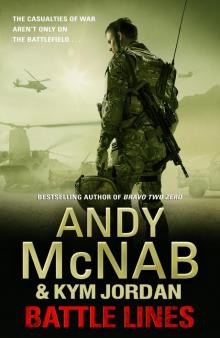 Battle Lines
Battle Lines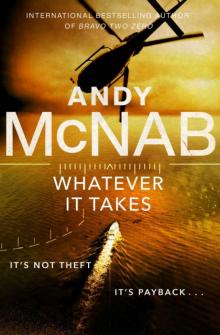 Whatever It Takes
Whatever It Takes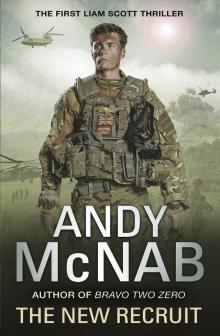 The New Recruit
The New Recruit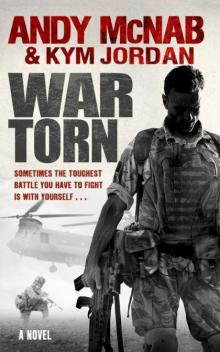 War Torn
War Torn Brute Force
Brute Force Crossfire
Crossfire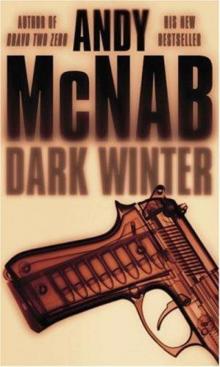 Dark Winter ns-6
Dark Winter ns-6 The Grey Man
The Grey Man Spoken from the Front
Spoken from the Front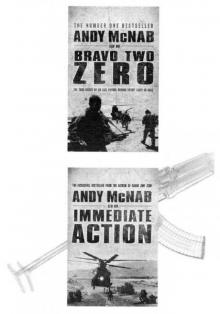 Meltdown
Meltdown Recoil
Recoil Nick Stone 1 - Remote Control.
Nick Stone 1 - Remote Control.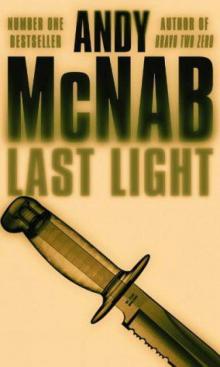 Last Light ns-4
Last Light ns-4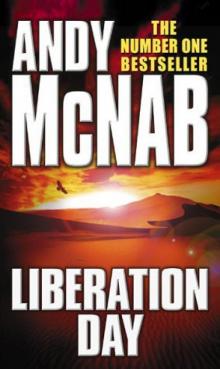 Liberation day
Liberation day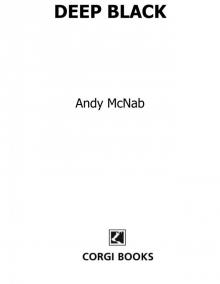 Deep Black
Deep Black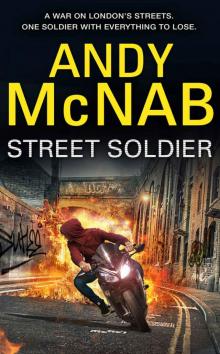 Street Soldier
Street Soldier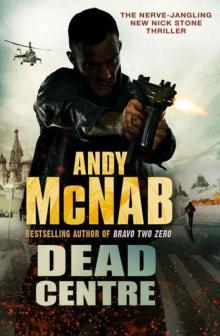 Dead Centre ns-14
Dead Centre ns-14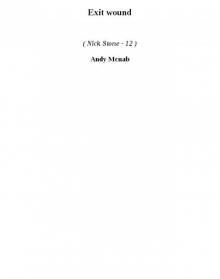 Exit wound ns-12
Exit wound ns-12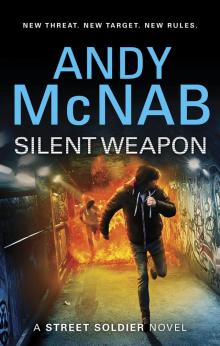 Silent Weapon
Silent Weapon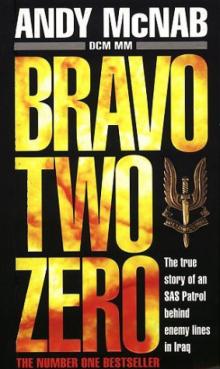 Bravo two zero
Bravo two zero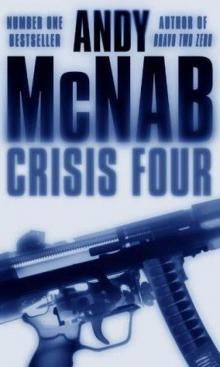 Crisis Four ns-2
Crisis Four ns-2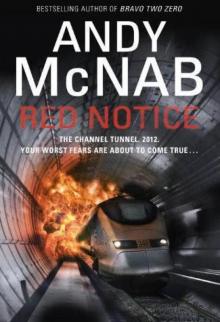 Red Notice
Red Notice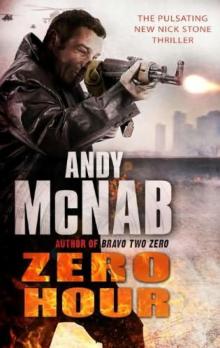 NS13 Zero Hour
NS13 Zero Hour Firewall
Firewall Last Light
Last Light Aggressor
Aggressor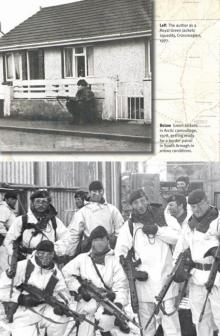 Seven Troop
Seven Troop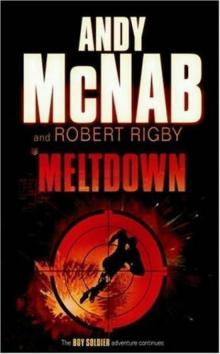 Meltdown bs-4
Meltdown bs-4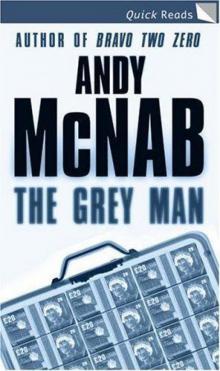 The Grey Man (quick reads)
The Grey Man (quick reads)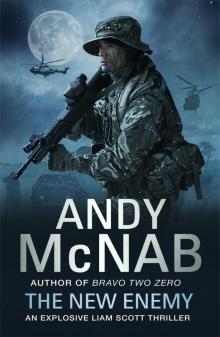 The New Enemy
The New Enemy Avenger
Avenger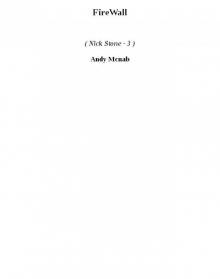 FireWall ns-3
FireWall ns-3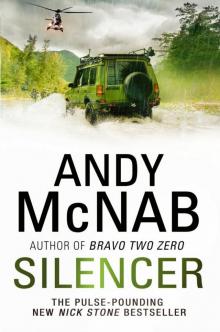 Silencer
Silencer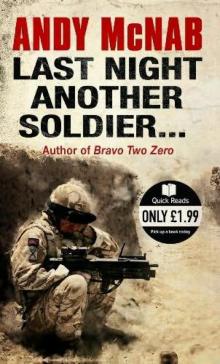 Last Night-Another Soldier…
Last Night-Another Soldier…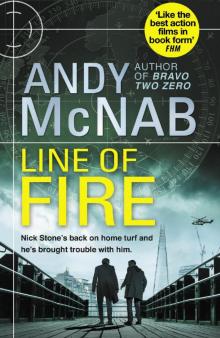 Line of Fire:
Line of Fire: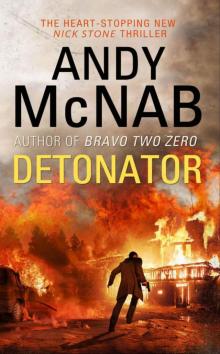 Detonator
Detonator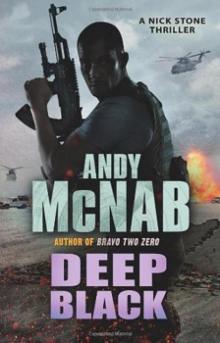 Deep Black ns-7
Deep Black ns-7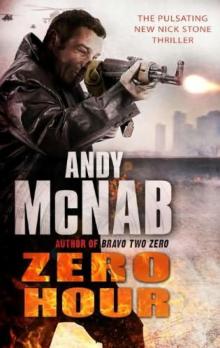 Zero Hour (2010) ns-13
Zero Hour (2010) ns-13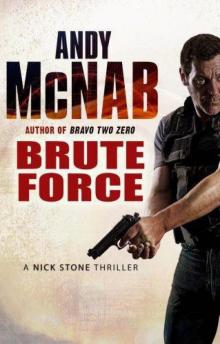 Brute Force ns-11
Brute Force ns-11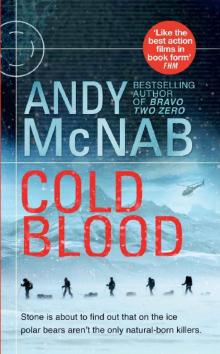 Cold Blood
Cold Blood Terminal Velocity
Terminal Velocity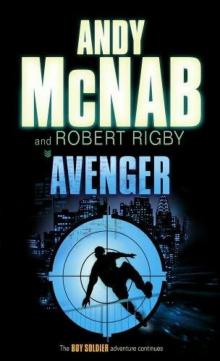 Avenger bs-3
Avenger bs-3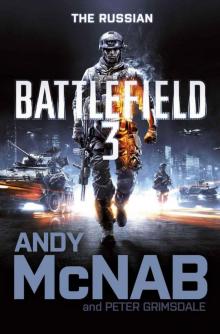 Battlefield 3: The Russian
Battlefield 3: The Russian DropZone
DropZone Zero Hour
Zero Hour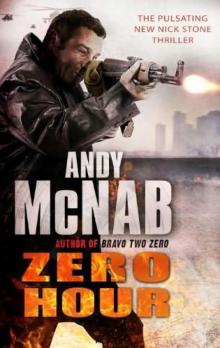 NS13 Zero Hour (2010)
NS13 Zero Hour (2010)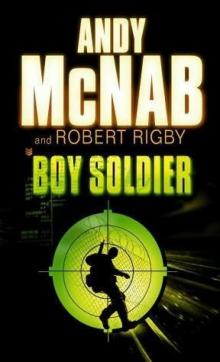 Boy soldier bs-1
Boy soldier bs-1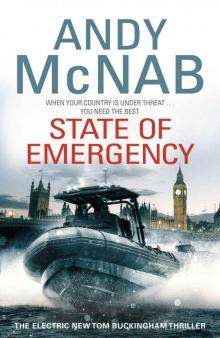 State Of Emergency: (Tom Buckingham Thriller 3)
State Of Emergency: (Tom Buckingham Thriller 3)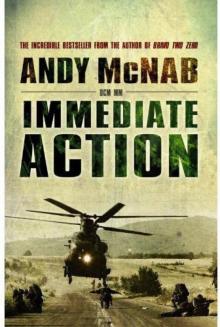 Immediate Action
Immediate Action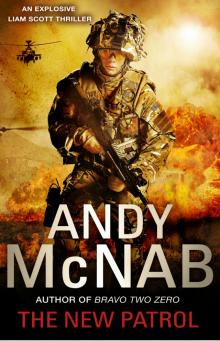 The New Patrol
The New Patrol Crisis Four
Crisis Four Boy Soldier
Boy Soldier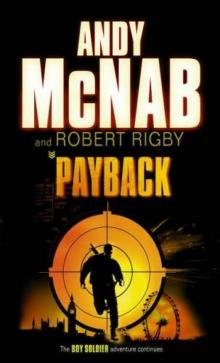 Payback bs-2
Payback bs-2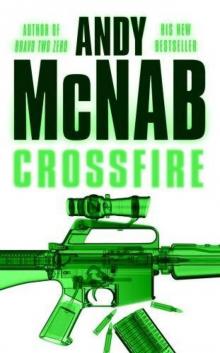 Crossfire ns-10
Crossfire ns-10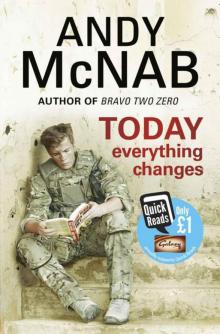 Today Everything Changes: Quick Read
Today Everything Changes: Quick Read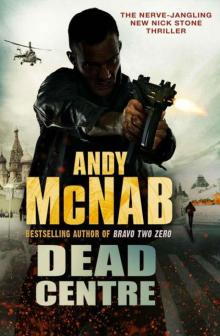 Dead Centre
Dead Centre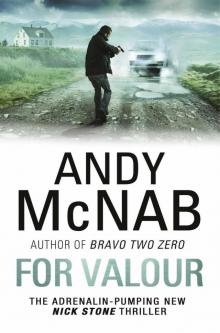 For Valour
For Valour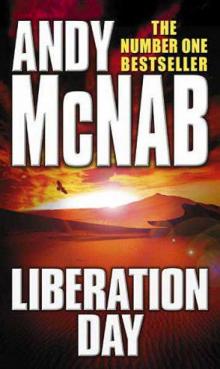 Liberation Day ns-5
Liberation Day ns-5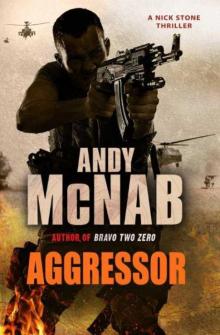 Aggressor ns-8
Aggressor ns-8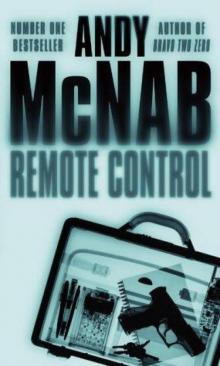 Remote Control ns-1
Remote Control ns-1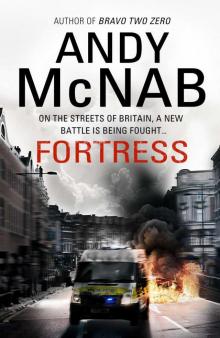 Fortress
Fortress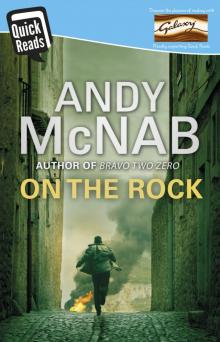 On the Rock
On the Rock Dark Winter
Dark Winter